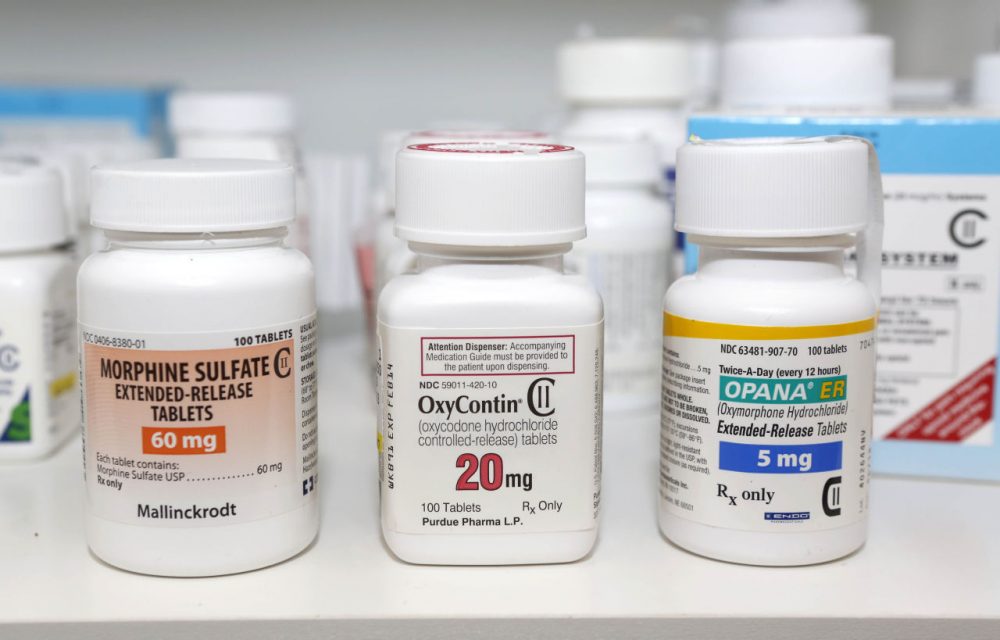Advertisement
Mass. Sues Purdue Pharma Over 670 Residents Who Fatally Overdosed On Opioids

State Attorney General Maura Healey announced Tuesday that Massachusetts is suing Purdue Pharma on behalf of 670 Massachusetts residents who were prescribed OxyContin, became addicted to opioids, overdosed and died.
The 80-page complaint filed Tuesday in state court says the pharmaceutical company violated the state’s consumer protection law. Sixteen current and former Purdue directors and executives are also named in the lawsuit.
Healey says Purdue and its leaders misled doctors and patients when they called OxyContin “the gold standard” in pain relief, and that they dismissed warnings about patients getting addicted to the drug. Healey said Purdue targeted veterans, seniors and other vulnerable populations, and that the company’s actions fueled the opioid epidemic.
“Purdue Pharma and its executives built a multimillion-dollar business based on deception and addiction,” Healey said in a statement. “The more drugs they sold, the more money they made, and the more people in Massachusetts suffered and died.”
Healey’s allegations are not new. Hundreds of cities and countries are suing Purdue and other pain medication manufacturers and distributors in cases now consolidated in a Chicago court. Two dozen states have already filed complaints against Purdue. Healey said her case is the first state to name company leaders.
In a statement, Purdue says it vigorously denies the allegations.
“We share the Attorney General's concern about the opioid crisis. We are disappointed, however, that in the midst of good faith negotiations with many states, the Commonwealth has decided to pursue a costly and protracted litigation process. We will continue to work collaboratively with the states toward bringing meaningful solutions.”
The company posted notice in February that it had “restructured and significantly reduced our commercial operation and our sales representatives will no longer promote opioids to prescribers.”
But Gov. Charlie Baker suggested that was way too late.
"By the mid-2000s, there was simply no debate about whether or not these pills were causing chaos, heartache and death across the Commonwealth and across the United States,” said Baker. The governor, a Republican, praised Healey, a Democrat, for pressing Purdue "to own up to the decisions they made and the wreckage they left behind.”
Baker's office helped Healey build a case against Purdue, using data from the state's prescription monitoring program. The Department of Public Health matched OxyContin prescriptions, going back to 2009, with death records through 2017.
At the news conference to announce the lawsuit, Healey was flanked by families struggling to help their children fight an opioid addiction.
Joanne Peterson, who founded the parent support network Learn to Cope, said she’s waited almost 15 years for this case, but she realizes the courts can’t heal all wounds.
“We will never bring back all of those people who have lost their lives or our families whose lived have been forever changed,” Peterson said.
Healey said her staff continues work internally and with other state attorneys general to investigate additional opioid prescription manufacturers and distributors, leaving open the possibility of settlements or more lawsuits.
This article was originally published on June 12, 2018.
